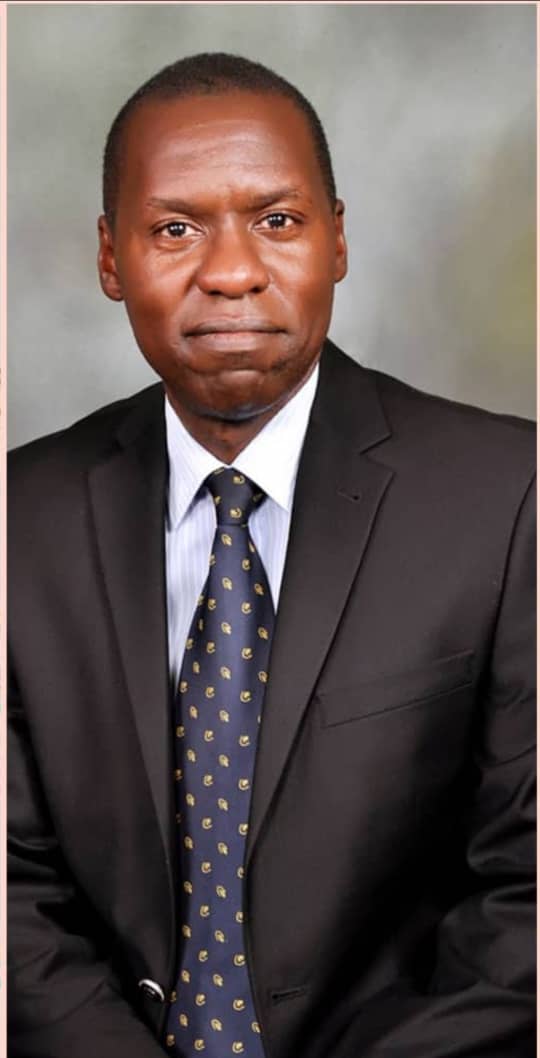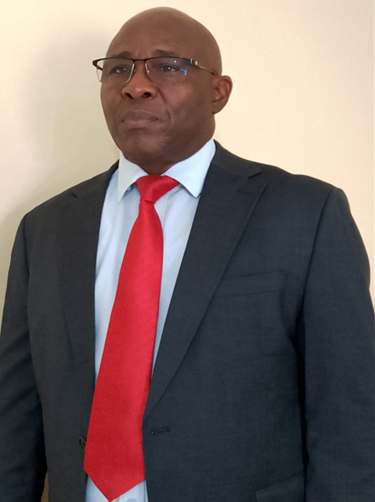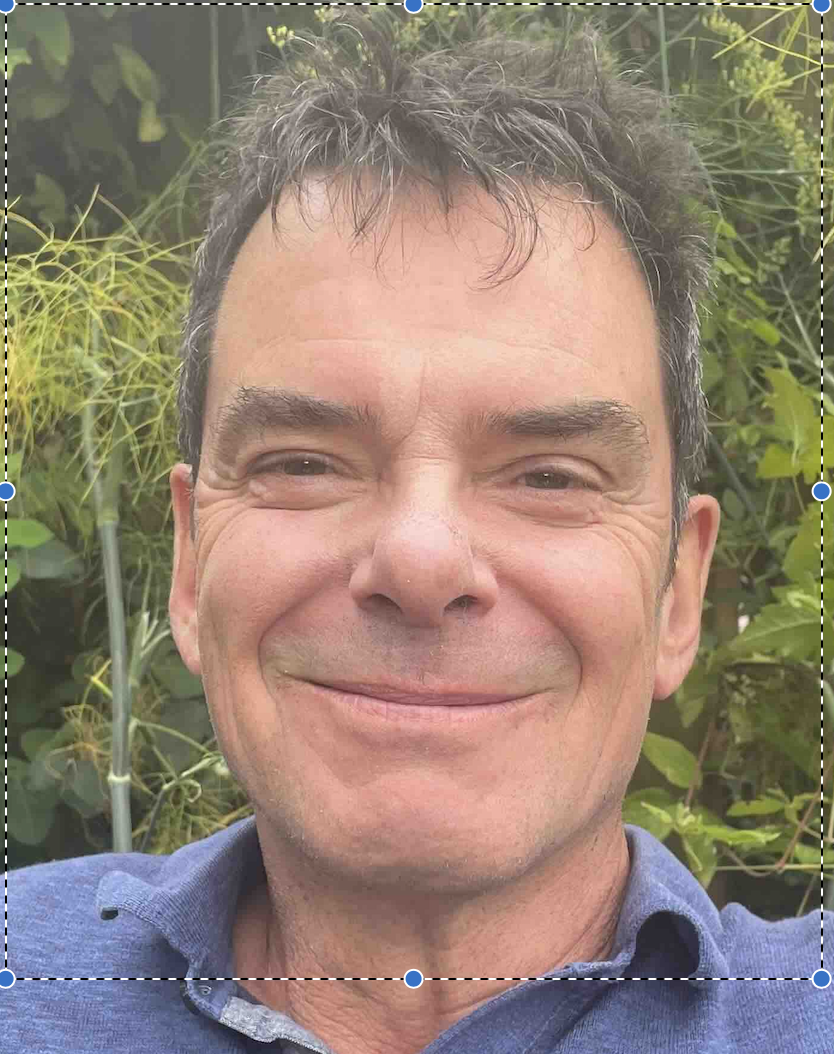 Dr. Michael Nkuba  mnkuba@gmail.com mnkuba@gmail.comWebsite: https://ori.ub.bw/about-ori |
He has Phd in Environmental science from University of Botswana, master’s in development studies from University College Dublin and Bachelor of Science in Agriculture from Makerere university. The areas of expertise include climate change adaptation, climate services, indigenous knowledge systems, rural development, natural resource management; arable farmers and pastoral adaptation to climate change with particular emphasis on use of indigenous and scientific forecasts (climate information), land rights and land tenure; and livelihood diversification among fishing communities. He is a research scholar on climate change adaptation, indigenous knowledge systems and climate services. He has published several papers in reputable and Scopus-indexed outlets. Two of his publications were cited in IPCC Assessment Report 6 on Impacts, adaptation and Vulnerability in chapter 5 (Food, fibre and other ecosystem services) and Cross chapter 5 (Mountains). He was involved in the curriculum development for Masters in climate change and sustainable development with Southern African Regional Universities Association entailed integrating Indigenous knowledge systems in climate change education. The title of his Phd Thesis was: The Use of Indigenous and Scientific Forecasts in adaptation to climate variability and Change. A case study of Rwenzori region, Western Uganda. Research interests include indigenous knowledge systems, climate change and health, climate services, climate change adaptation, natural and water resource management. He was one of expert reviewers of the forthcoming Global Environmental Outlook 7 report of United Nations Environmental Programme (to be published later in 2025). |
 Dr.Shadrack Kiana Murimi  murimi.shadrack@ku.ac.keor shadrackmurimi25@gmail.com murimi.shadrack@ku.ac.keor shadrackmurimi25@gmail.comWebsite: https://humanities.ku.ac.ke/geography/dr-shadrack-kiana-murimi Dr. Shadrack Kiana Murimi is a Senior Lecturer in the School of Law, Arts and Social Sciences, Department of Geography, Kenyatta University. He is a hydro-geomorphologist and geoinformatics expert with working knowledge in integrated watershed management (IWM) and geohazard vulnerability and risk analysis (GVRA) through geospatial methodologies. Shadrack Murimi’s academic area of specialization is geared towards studies on community-based planning and management of social/economic and environmental resources, including geohazard related impacts. His research expertise is biased towards the dynamics of watershed settlements and paleo – sedimentation history of the Eastern Africa Rift valley drainage basins. The many years of academic and professional preparation has enabled Shadrack to develop strong broad foundation and knowledge in geospatial data processing through computer-based software analysis and mapping. He undertook Ph.D degree in hydro-geomorphology and geoinformatics through German Academic Exchange Services (DAAD) In-Country (sandwich) Programme in Trier University, Germany and Kenyatta University, Kenya. He did his Master of Science degree (MSc. in Geomorphology and Remote Sensing) and Bachelor of Education Science (Geography/Chemistry) in Kenyatta University. His Ph.D and MSc. Thesis Title, was on “Environmental impact assessment of soil and water resources in the watershed of Lake Nakuru, Kenya” and “An investigation of some aspects of recent geomorphological and hydrological changes in the Lake Elmenteita catchment area, Kenya”, respectively. |
The many years of academic and professional preparation has enabled Shadrack to develop strong broad foundation and knowledge in geospatial data processing through computer-based software analysis and mapping. He undertook Ph.D degree in hydro-geomorphology and geoinformatics through German Academic Exchange Services (DAAD) In-Country (sandwich) Programme in Trier University, Germany and Kenyatta University, Kenya. He did his Master of Science degree (MSc. in Geomorphology and Remote Sensing) and Bachelor of Education Science (Geography/Chemistry) in Kenyatta University. His Ph.D and MSc. Thesis Title, was on “Environmental impact assessment of soil and water resources in the watershed of Lake Nakuru, Kenya” and “An investigation of some aspects of recent geomorphological and hydrological changes in the Lake Elmenteita catchment area, Kenya”, respectively. |
 Prof.Rob Marchant YESI Theme Lead for Socio-ecological Systems Department of Environment and Geography University of York York, UK  robert.marchant@york.ac.uk robert.marchant@york.ac.ukWebsite: https://www.york.ac.uk/environment-geography/people/rob-marchant/
|
Rob Marchant is a Professor in the Department of Environment and Geography and co-lead for the Resilient Socio-ecological systems research theme for the York Environmental Sustainability Institute. His research interests focus on ecosystems and how they change, when they change and what has driven this change. In particular, Rob uses palaeoecology, vegetation modelling, archaeological, biogeographical and ecological data to determine the role of past events in shaping the present day composition and distribution of tropical ecosystems. His research focuses on social ecosystem interactions, at a wide range of timescales, and developing tools to understand and navigate potential sociological futures. Rob’s work has resulted in over 400 publications, including books and contributions into the Intergovernmental science-policy Platform on Biodiversity and Ecosystem Services (IPBES) Africa Regional Assessment, the IPBES Land Degradation and Restoration Assessment, the Intergovernmental Panel on Climate Change (IPCC). Rob has a particular passion for understanding mountain ecosystem transitions across Eastern Africa and using this understanding to craft more sustainable and resilient futures. Through his work, Rob strives to enhance opportunity, build collaborations, innovations and impact to support development agenda and to deal with the challenges around changing climate and their impact on mountain ecosystems and societies. Rob makes the link between science and policy and continues to look at ways where insights from his work can be applied, most recently leading the Mountain Socio-ecological Futures working group of the Mountain Research Initiative. Prof.Rob Marchant will visit the Department of Geography, Geo-Informatics and Climatic Sciences and deliver a public lecture under the theme USING THE PAST TO SHAPE A PROSPEROUSFUTURE FOR MOUNTAINS ECOSYSTEMS AND COMMUNITIES on 28th October 2025 at 2:00pm-3:00pm. Venue: CONFERENCE ROOM, SCHOOL OF FORESTRY, ENV. AND GEOG SCIENCE, MAKERERE UNIVERSITY |
 Prof. Min Liu Nanjing University of Information Science and Technology  min.liu@nuist.edu.cn min.liu@nuist.edu.cnWebsite: https://faculty.nuist.edu.cn/liumin1/en/index.htm
|
Prof. Min Liu is a leading scholar in urban water systems and smart water management. He currently serves as a Professor at Nanjing University of Information Science and Technology (NUIST), Director of the Institute of Urban Water and Hydraulic Engineering, and Director of HydroAI Lab—an interdisciplinary research group comprising 8 professors and around 30 graduate students. He is also the founder of Delta Water Institute (DWI) and the Managing Director of Welle Group, university spin-offs dedicated to developing innovative software and IoT sensors for water systems. Prof. Min Liu is conducting a four day training in the Department of Geography, Geo-Informatics and Climatic Sciences under the theme Application of Artificial Intelligence in Meteorology and Hydrology In Uganda. 09-12/December 2025, Venue: Computer lab. |
 Prof.Guangxin He Deputy director of International affairs Office, Nanjing University of Information Science and Technology  ghe@nuist.edu.cn ghe@nuist.edu.cnWebsite: https://faculty.nuist.edu.cn/heguangxin/en/index/67137/list/index.htm
|
. Prof.Guangxin is conducting a four day training in the Department of Geography, Geo-Informatics and Climatic Sciences under the theme Application of Artificial Intelligence in Meteorology and Hydrology In Uganda. 09-12/December 2025, Venue: Computer lab. |
Department of Geography, Geo-Informatics and Climatic Sciences
Loading
